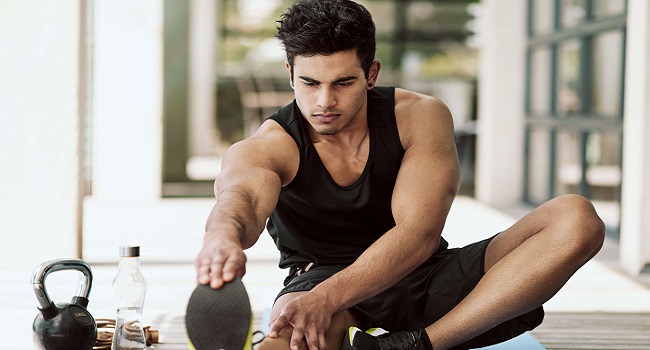Sports are a fantastic way to stay fit, blow off steam, challenge yourself, and even make new friends. But nobody enjoys being sidelined by an injury.
Whether you’re a seasoned athlete or a weekend warrior, preventing injuries is crucial for staying active and enjoying your favorite sports. The good news is that there are many things you can do to minimize your risk. Here are some practical tips that can help you stay healthy wherever your sport takes you:
Warm Up Properly
Warming up is like revving up your car before hitting the road. It gets your body ready for action. Start with light cardio, like jogging or jumping jacks. Then, move on to dynamic stretches that mimic the movements of your sport.
Hold each stretch for a few seconds, focusing on your major muscle groups. A good warm-up increases your heart rate, blood flow, and body temperature, helping to prevent sports injuries. If you’re unsure about the best warm-up routine for your sport, consulting professionals from a sports clinic Singapore can provide valuable guidance.
Build Strength and Flexibility
Stronger muscles and better flexibility are your body’s natural armor against sport injuries. Incorporate strength training into your routine.
Focus on exercises that target your core, legs, and upper body. Don’t forget about flexibility. Static stretches, like holding a hamstring stretch, can help improve your range of motion. Aim for a balance of strength and flexibility training.
Listen to Your Body
Your body talks to you. Pay attention. If something hurts, don’t ignore it. Pain is your body’s way of saying, “Hey, something’s wrong.” Rest when you need to. Overtraining can lead to burnout, injuries, and decreased motivation. It’s okay to take a break. Your body will thank you for it in the long run.

Wear the Right Gear
No matter what type of sport you prefer, the right gear can make a big difference in your comfort, performance, and injury prevention. Invest in shoes designed for your specific sport.
Running shoes, for example, are not created equal. A good running shoe should provide the right amount of cushioning and support for your foot type and running style.
When it comes to protective gear, there’s no room for skimping. Helmets, pads, and mouthguards are essential for many sports. However, make sure your gear fits properly. Ill-fitting shoes or pads can cause blisters, skin irritation, and even restrict your movement, increasing your risk of injury.
It’s also important to inspect your protective or safety gear regularly for signs of wear and tear. Replace any damaged equipment to ensure optimal protection.
Learn Proper Technique
Mastering the fundamentals of your sport is a surefire way to move with efficiency and lower your likelihood of sustaining an injury. Poor technique puts unnecessary stress on your joints, muscles, and tendons, which can lead to pain, strains, sprains, and even more serious injuries.
Take some time to learn the proper form for the movements involved in your sport. This could involve signing up for lessons with a qualified coach, attending a clinic, or watching instructional videos.
Stay Hydrated
Dehydration can lead to fatigue and cramps, making you more likely to injure yourself. Drink plenty of water before, during, and after exercise. The amount you need depends on factors like the intensity of your workout, weather conditions, and your body size.
Cool Down
Cooling down helps your body recover and prevents stiffness. Engage in light cardio, like walking or jogging, followed by static stretches. Hold each stretch for 15-30 seconds. Cooling down helps your muscles relax and reduces the risk of soreness.
Get Enough Sleep
When you exercise, you create tiny tears in your muscle fibers. Sleep is when your body goes into repair mode, rebuilding those muscle fibers and making them stronger. Adequate sleep also helps to boost your immune system, making you less susceptible to illness and injury. Below are some tips for getting a better night’s sleep:
- Establish a regular sleep schedule and stick to it as much as possible, even on weekends.
- Create a relaxing bedtime routine that helps you wind down before sleep.
- Make sure your bedroom is dark, quiet, and cool.
- Avoid caffeine and alcohol before bed.
- Get regular exercise, but not too close to bedtime.
By following these tips, you can improve your sleep quality and give your body the rest it needs to recover from your workouts and stay healthy.
Nutrition Matters
Sports injuries can take a significant physical toll, but it’s important to remember the psychological impact as well. Fueling your body with the right nutrients is crucial for both physical recovery and mental well-being. A balanced diet provides the energy and building blocks your body needs to heal and rebuild. Prioritize fruits, vegetables, whole grains, and lean protein to support your overall health and recovery process.
Check Your Environment
Be aware of your surroundings. Look out for hazards like potholes, uneven surfaces, and other people. Adjust your activity level to match the conditions. For example, if it’s hot and humid, reduce the intensity of your workout.
Conclusion
If you want to prevent sports injuries, you need to make smart choices. Once you follow the tips above, it’s possible to enjoy a lifetime of active fun while reducing your risk of injury. Always remember that it’s better to prevent an injury than to treat one.
















